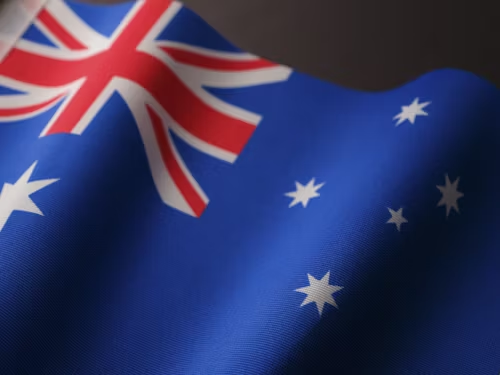Introduction
In a world where civic spaces often feel distant or formal, the Hawke Centre in Adelaide quietly stands out as a place where real conversations happen, and genuine connections form. Nestled within the University of South Australia’s Hawke Building, it offers more than events—it cultivates community, celebrates culture, and nurtures change.
A Living Legacy
Named for Bob Hawke, Australia’s long‑serving prime minister known for bold reforms—Medicare, superannuation, cultural diplomacy—the Bob Hawke Prime Ministerial Centre was established in 1997. It remains the world’s first prime ministerial library founded during a living prime minister’s tenure. From its inception, it was envisioned as both memorial and meeting space: honoring Hawke’s values of education, fairness, diversity and dialogue.
Free, Thought‑Provoking Events
The Hawke Centre produces a year‑round program of free public events, anchored by signature lectures like the Annual Hawke Lecture and the Nelson Mandela Lecture series. Speakers have ranged from political leaders like Senator Penny Wong to intelligence chief Mike Burgess AC, who recently delivered a keynote on national security and evolving global threats.
These events invite community members into open, respectful discussion on topics from climate justice and Indigenous rights to scientific ethics and geopolitical risk—reinforcing the Centre’s ethos of “Strengthening our Democracy – Valuing our Diversity – Building our Future.”
Civic Gallery as Cultural Bridge
On Level 3 of the Hawke Building, the Kerry Packer Civic Gallery hosts rotating exhibitions tied to social themes and public reflection. Recent highlights include:
-
“A Fairer Future”: an exhibition celebrating education and social mobility, featuring archives from the Hawke government and Library collections
-
“LOWITJA – A Life of Leadership and Legacy”: honoring Dr Lowitja O’Donoghue, exploring themes of Indigenous advocacy, healthcare, ATSIC
-
“Artists on the Inside”: giving voice to adults incarcerated in South Australia through artworks that foster connection and storytelling beyond prison walls
-
“This Is All Human Made”: an award‑winning visual art and design show celebrating human creativity and resisting the overreach of AI in creative fields
Each exhibition creates cultural touchpoints—accessible, open, thought‑provoking—and encourages the public to engage with ideas through art, narrative, and dialogue.
Spaces Designed for Civic Engagement
The Hawke Building, completed in 2007, is more than bricks and mortar. It’s a civic space with intention: ground‑floor auditorium (400 seats), Bradley Forum (150 seats), seminar rooms, staff offices, classrooms, and the Bob Hawke Prime Ministerial Library on upper levels.
The gallery and library sit at the heart of this ecosystem. With free public entry, wheelchair access, and proximity to public transport along North Terrace, it’s designed for cultural inclusion and accessibility.
A Living Archive for Research and Reflection
The Bob Hawke Prime Ministerial Library houses an exceptional collection of documents, artifacts, speeches, gift items, photographs and audio records—from vintage motorcycles and state‑gifts like those from President Reagan, to personal letters and cabinet papers—making it both historically rich and research‑friendly.
Established in 1997 and expanded after Hawke’s passing in 2019, it allowed scholars, journalists, and the public to explore Australia’s modern political history through lived experience and material culture.
Engaging Diverse Voices
This Centre is deliberate in featuring voices that too often go unheard. It amplifies Indigenous leadership (like the Lowitja exhibition), supports creative expression from imprisoned individuals, and hosts literary events such as Stella Day Out, a one‑day festival celebrating women and non‑binary writers in Australian literature.
These programs align with the Centre’s commitment to “Valuing our Diversity”, ensuring programming remains culturally inclusive and community‑centered.
Bridging Research, Policy, and Public Life
The Hawke Centre actively connects academic research, public policy, and community life. It frequently facilitates inter‑sectoral collaboration—bringing together university researchers, government, the private sector and NGOs to co‑create ideas and events.
By making research accessible—such as public lectures that interpret new findings or exhibitions built around Library content—it builds trust and relevance between the academy and the broader community.
Impact and Influence
While direct policy shifts are seldom traced back to a single lecture or show, the Centre’s recorded talks, archived materials, and public conversations have influenced media narratives, civic discourse, and public awareness in Adelaide and beyond. It offers public access to big ideas—and archives them for ongoing reference. Often, speakers featured become agents of change, and exhibitions spark community projects.
Adapting to a Changing World
Over time, the Hawke Centre has adapted with society: most events are now offered via livestream, and archived digitally for on‑demand access. This hybrid model not only preserves accessibility but expands its reach globally.
Each year, topical themes evolve—from pandemic policy and scientific communication, human rights and climate justice, to contemporary security concerns and cultural resilience.
Why the Hawke Centre Matters
Because it lives within the community, not above it. Because it draws people in through free access, real art, and real ideas. Because it bridges:
-
Community, by offering inclusive, genuine public entry and a listening space.
-
Culture, by hosting artistic and literary exhibitions that provoke empathy and reflection.
-
Change, by fostering discussions that spur civic awareness and linking academic insight to wider society.
It is rare to see a single institution so consistently aligned with both historical memory and future imagination.
Conclusion
The Hawke Centre is more than a museum or lecture hall—it is a living civic asset. From the Bob Hawke Prime Ministerial Library to the Kerry Packer Civic Gallery to flagship events, it fosters dialogue, empowers voices, and gently nudges ideas into action.
For anyone interested in how culture, community and scholarship converge to shape society, the Hawke Centre is a compelling model. Whether you attend a lecture, visit an exhibition, or explore the archives—it invites you to participate in shaping Australia’s democratic and cultural future.
